
Brigade of Gurkhas is the collective name which refers to all the units in the British Army that are composed of Nepalese Gurkha soldiers. The brigade draws its heritage from Gurkha units that originally served in the British Indian Army prior to Indian independence, and prior to that served for the East India Company. The brigade includes infantry, engineering, signal, logistic and training and support units. They are known for their khukuri, a distinctive heavy knife with a curved blade, and have a reputation for being fierce and brave soldiers.
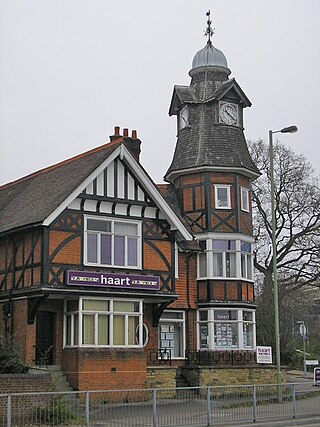
Farnborough is a town located in the Rushmoor district of Hampshire, England. It has a population of around 57,486 as of the 2011 census and is an important centre of aviation, engineering and technology. The town is probably best known for its association with aviation, including the Farnborough International Airshow, Farnborough Airport, Royal Aircraft Establishment, and the Air Accidents Investigation Branch.
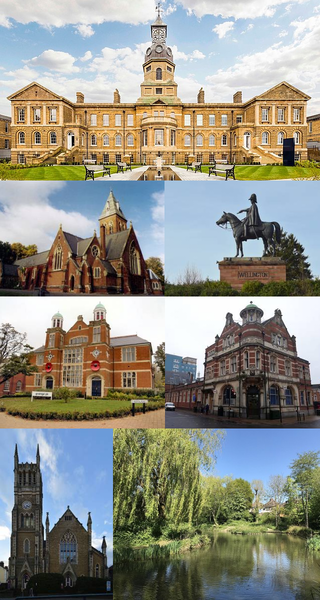
Aldershot is a town in the Rushmoor district, Hampshire, England. It lies on heathland in the extreme north-east corner of the county, 31 mi (50 km) south-west of London. The town has a population of 37,131, while the Aldershot Urban Area – a loose conurbation, which also includes other towns such as Camberley and Farnborough– has a population of 243,344; it is the thirtieth-largest urban area in the UK.
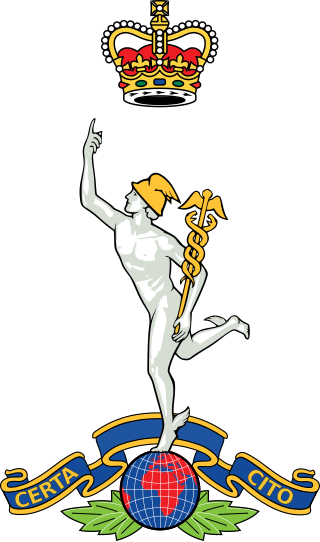
The Royal Corps of Signals is one of the combat support arms of the British Army. Signals units are among the first into action, providing the battlefield communications and information systems essential to all operations. Royal Signals units provide the full telecommunications infrastructure for the Army wherever they operate in the world. The Corps has its own engineers, logistics experts and systems operators to run radio and area networks in the field. It is responsible for installing, maintaining and operating all types of telecommunications equipment and information systems, providing command support to commanders and their headquarters, and conducting electronic warfare against enemy communications.

Rushmoor is a local government district with borough status in Hampshire, England. It covers the towns of Farnborough and Aldershot, the former of which is the location of the council.
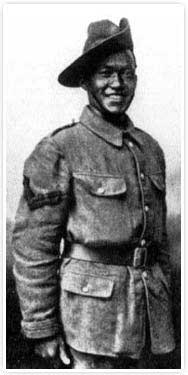
Kulbir Thapa Magar VC was the first Nepalese Gurkha recipient of the Victoria Cross, the highest and most prestigious award for gallantry in the face of the enemy that can be awarded to British and Commonwealth forces.
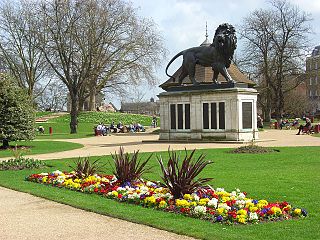
Forbury Gardens is a public park in the town of Reading in the English county of Berkshire. The park is on the site of the outer court of Reading Abbey, which was in front of the Abbey Church. The site was formerly known as the Forbury, and one of the roads flanking the current gardens is still known as The Forbury. Fairs were held on the site three times a year until the 19th century.

Aldershot Garrison, also known as Aldershot Military Town, is a major garrison in South East England, between Aldershot and Farnborough in Hampshire. The garrison was established when the War Department bought a large area of land near the village of Aldershot, with the objective of establishing a permanent training camp for the Army. Over time, this camp grew into a military town and continues to be used by the Army to the present day. It is home to the headquarters of the Army's Regional Command and Home Command, and it is also the headquarters for the Army Special Operations Brigade. The garrison plays host to around 70 military units and organisations.
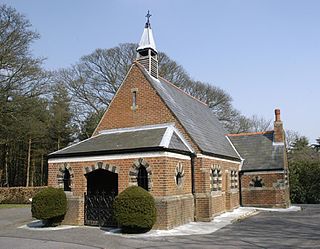
Aldershot Military Cemetery is a burial ground for military personnel, or ex-military personnel and their families, located in Aldershot Military Town, Hampshire.

Rowhill Nature Reserve or Rowhill Copse is a 26.6-hectare (66-acre) Local Nature Reserve (LNR) which straddles the border between Aldershot in Hampshire and Farnham in Surrey. It is owned by Rushmoor Borough Council, was declared an LNR by Waverley Borough Council and is managed by Rowhill Nature Reserve Society.

The Prince Consort's Library in Aldershot Military Town in the English county of Hampshire was founded by Prince Albert to contribute to the education of soldiers in the British Army. Today it is the military specialist library of the Army Library Service, specialising in the provision of information on current military topics, political subjects and international relations in support of operations, intelligence, training and education in the Armed Forces. It is a Grade II listed building.

Cambridge Military Hospital was a hospital completed in 1879 in Aldershot Garrison, Hampshire, England which served the various British Army camps there. During World War I, the Cambridge Hospital was the first base hospital to receive casualties directly from the Western Front. It was also the first place where plastic surgery was performed in the British Empire under Harold Gillies. It is now the residential estate Gun Hill Park.
In countries whose armies are organised on a regimental basis, such as the army of the United Kingdom, a regimental museum is a military museum dedicated to the history of a specific army regiment.

The Park Crematorium in Aldershot is undergoing a major refurbishment in summer 2024. From 7 May, funeral services will be taking place at the Redan Road cemetery chapel. The crematorium grounds will still be open for visitors to pay their respects to loved ones.
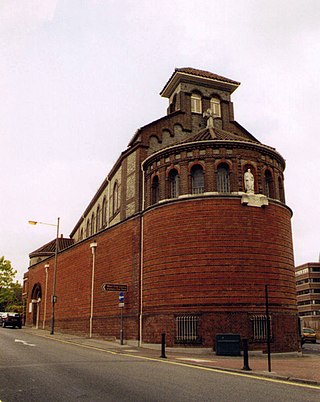
St Joseph's Church is a Roman Catholic Parish church in Aldershot, Hampshire. Built in 1913, it is situated at the top of a ridge on Queens Road, overlooking the town centre, between the Municipal Gardens and Princes Hall. It is a Grade II listed building. Sir Nikolaus Pevsner described it as 'One of the most impressive churches of its date, brilliantly planned on a triangular site.'

Municipal Gardens is an urban park in the town of Aldershot in Hampshire. A short walk from the town centre it has been a public park since 1904. In its ornamental garden is the Aldershot Cenotaph which commemorates the town's dead from both World Wars. In 2019 the Cenotaph received Grade II listed status on the Register of Historic England.

Manor Park is an urban park in the town of Aldershot in Hampshire. A short walk from the town centre, it has been a public park since 1919. The former manor house located in the park is Grade II listed. Facilities include a play area, tennis and basketball courts and an all-concrete skate park designed and built by Fearless Ramps and which opened in 2013. Today Manor Park is owned and maintained by Rushmoor Borough Council. Since 2018 Manor Park has been the venue for the annual Picnic & Pop Music Festival. The festival has been attended by 5000 local people each year.

Queen Elizabeth Barracks was a military installation at Church Crookham, Hampshire, England.

Aldershot Town Hall is a municipal building in Grosvenor Road, Aldershot, Hampshire, England. The town hall, which was the headquarters of Aldershot Borough Council, is a Grade II listed building.
Future Soldier is a reform of the British Army resulting from the Integrated Review of Security, Defence, Development and Foreign Policy published in March 2021. The aim of the reform is to create a more lethal, agile and expeditionary force, able to fight and win wars and to operate in the grey-zone between peace and war. Future Soldier was published on 25 November 2021 and deals with the organizational changes of the British Army, with changes to personnel and equipment were set out in the Defence in a Competitive Age paper published on 22 March 2021.






















